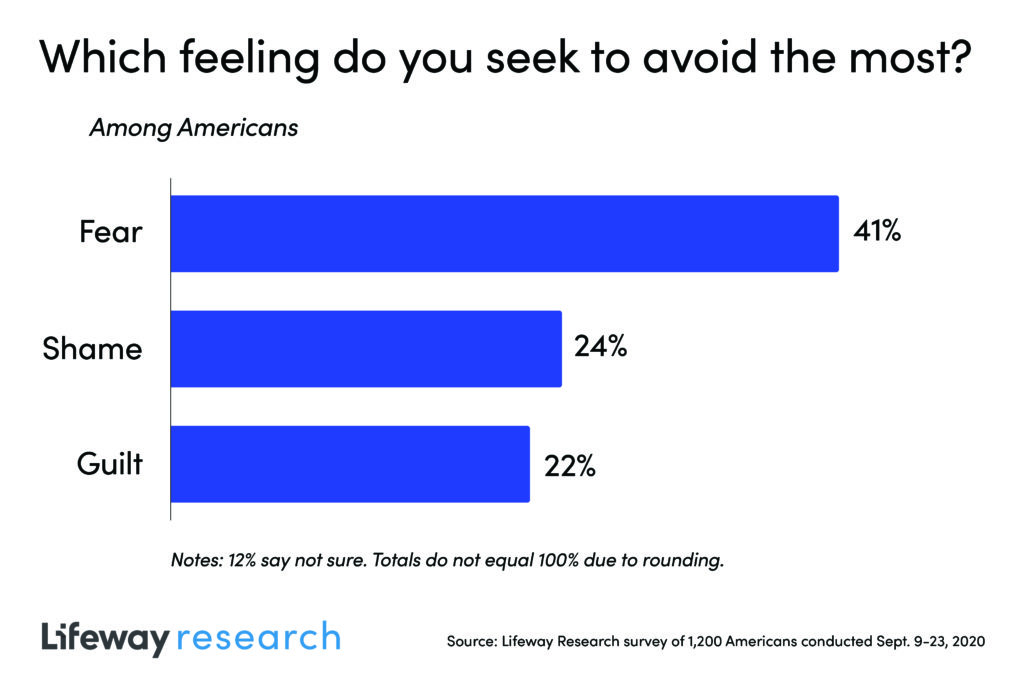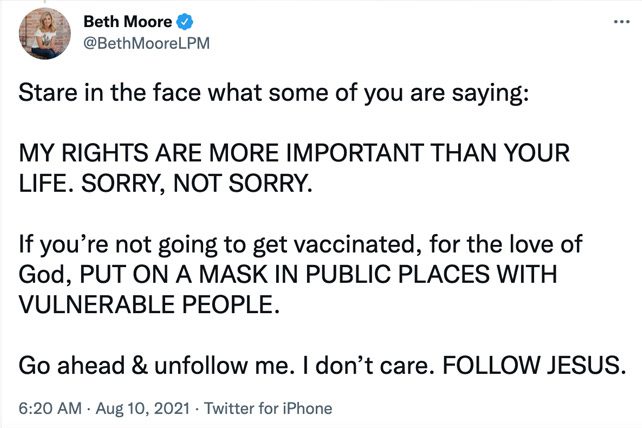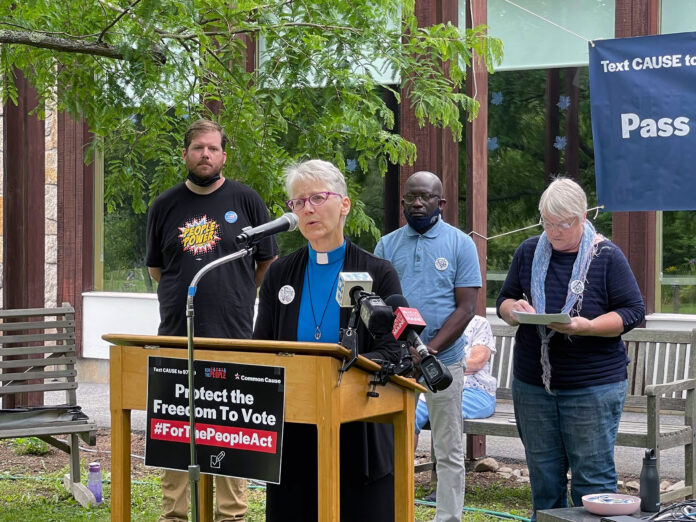
The COVID-19 pandemic has forced Christian leaders to think outside the box about everything, as buildings closed and services moved online. But now that churches are beginning to reopen their doors for in-person gatherings, pastors can see that previous ministry models were designed for a world that no longer exists. It’s a whole new world, especially when we consider small group leaders and small group makeup.
What should small groups look like now, in a society that has radically and irreversibly changed?
What should small groups look like now, in a society that has radically and irreversibly changed?
Of course, some things haven’t changed — and won’t ever change. Christian community is still the cure for isolation. Small groups are still the ideal context for deep discipleship. And studying the Bible regularly with other believers is still the best way to grow and mature in faith.
But Where Have All the Small Group Leaders Gone?
Here’s a post-COVID reality check: Small groups can’t grow and multiply if you don’t have the leaders to lead them. Volunteer leaders and volunteers are hard to come by these days. They always were, but now it’s even harder in a time when people are reevaluating their schedules and reconsidering their more cumbersome commitments. Various estimates show that up to 50% of volunteers and volunteer leaders don’t plan to return to their church position following the pandemic.
With fewer leaders available, recruiting and retaining volunteer small group leaders will require fresh creativity and a deeper look into your church pewsYou will also need to cultivate understanding and engagement in people who otherwise might never consider serving in this capacity. Just think how many caring, genuine Christians immediately disqualify themselves from the position of small group leaders, due only to the sheer level of commitment they believe will be required. Many people think:
- Facilitating a small group is vastly more complicated than participating.
- They must shoulder the responsibility for the group.
- They must be trained in all things “leadership.”
- They must have an impressive knowledge of the Bible.
- They need to spend long periods each week preparing resources.
- They are signing up for an indefinite commitment.
Followers of Christ aren’t less committed to discipleship today than they used to be; far from it! But there is a widespread lack of confidence and a reluctance to sign up for an undefined commitment that people feel ill-equipped for.
You can re-envision small group leaders and your approach to small groups.
When considering post-COVID realities, it’s important to remember that while some things have changed, others haven’t. These foundational keys to recruiting and retaining small group leaders still ring true — though how you execute them may look different in your setting.
- People networks and personal relationships encourage natural leadership opportunities.
You may have potential leaders in mind who are either already part of a small group or with whom you have an existing relationship. When you think of a small group leader, don’t think of a hole to fill. Think of someone you’re ready to invest in and help grow, then communicate that in a personal way. And be specific: People need to know why you can see them taking on the role.
- Overly difficult or involved processes will become barriers to service.
Take time to review what you’ve been asking of small group leaders up until now. Can you reduce the hoops they have to jump through? Are you expecting them to spend hours in preparation each week? Take a hard look at how much you’re requiring and see if there’s a way to streamline your process so it doesn’t become a barrier to people who might otherwise lead. Onboarding a new small group leader shouldn’t be cumbersome or overly time-consuming.
- If you want others to serve, invest in them.
Invest in small group leaders. Lavishly. Provide training in ways that are convenient and effective. Plan in-person events that provide something of deep relational value. Stay organized and available so they can rely on you as a resource. Invest in their personal spiritual and leadership growth. Get to know them. Pray for them. Check in regularly. Don’t just say you care; act like it.
You can make this new adventure more rewarding for volunteers when you are very clear about expectations, goals for spiritual growth, and logistics. While COVID taught us the need for flexibility is ever-present, it’s also essential to remain as consistent as possible. Be emotionally present and supportive with your leaders, and encourage them to be faithful to their small groups. Consistency builds trust and confidence in leaders, when other parts of life may still feel out of control.
- Equip and empower your leaders.
Perhaps the most important aspect of recruiting and retaining small group leaders is how you equip and empower them. Church strategies for multiplying small group structures can feel pretty complicated at times. Should groups be open or closed; missional or devotional; peer or intergenerational; topical or exegetical; online or in-person? When we get caught up in the complications, natural relational leadership can become challenging.
Maybe we can rethink how we approach small groups.
There are ways you can make small group leaders’ lives easier — often with the help of innovative technology. Suppose the burdensome aspects of running a group were taken care of. Would many more people be inspired to get into groups, get into Scripture, get into quality content, and get into transformative community? Would more be confidently inspired to lead? When your leaders are properly resourced, educated, and equipped, they will be more empowered to facilitate and their small group members will be more engaged.
What if starting and running small groups is all about posture, not pressure? Let’s think in terms of mutual rather than top-down discipleship. In mutual discipleship, he process doesn’t begin with formal positions or training prerequisites. Instead, it starts from a simple desire to learn from God’s Word and invite others to do the same. This leaves room for God to call upon even the most seemingly unqualified person to initiate and step out.
There is an easy way to make this mutual discipleship model happen. And here’s where it gets radical. You can equip small groups with a free, fully-resourced app that’s intelligently designed with small groups in mind and provides everything needed for a great group Bible study experience.
The WordGo app by Bible Study fellowship takes the tried, tested and trusted BSF content, training and in-depth Bible teaching and makes it fully accessible to everyone, regardless of location, schedule or life stage.
Here’s how it works.
When a person downloads the app and signs up to become a Group Guide, they can easily start a study with friends. The app provides all the tools, resources and training needed to run a Bible study — all in one place.
No more searching for the next sound Bible study resource to do with the group. Users simply pick one of a range of well-established, well-written, widely trusted studies. The commitment level is clearly defined, as WordGo courses range from one to six weeks in length.
No more racking one’s brain for discussion prompts. The app provides a variety of thoughtful questions and creative ways to use them to unlock deeper conversation.
No more time-consuming program planning. WordGo provides doable and repeatable gathering programs that pave the way for organic conversation. The intro-gathering feature guides the group through its first meeting. Other recent features provide members with a regular plan generated from their mid-week collaboration; for example, the group interacts around the questions during the week and votes on which to prioritize for discussion.
No more going it alone. One initiates, everyone participates. One invites, everyone contributes. We don’t do life alone; you shouldn’t have to lead or study alone. The group trains together to have biblical conversations and become more like Christ in the process.
The app provides all sorts of features and content to help each Group Member get into the Bible and stay in it. These include a daily personal rhythm of study and automated reminders about Group Gatherings. Everyone is free to grow in their gifts as other Group Members can also agree to co-Guide from the start.
What Could Small Groups Look Like?
Providing doable, high-quality content and low-pressure coaching — creatively and compassionately combined with in-app convenience — is a great way to give people in your church the confidence to take that brave step of starting a small group Bible study for the very first time.
Rethinking Small Group Leadership: What Does a Group Guide Do?
The requirements for a Group Guide are straightforward and doable. A Group Guide:
- Initiates/co-facilitates The app covers practical aspects of small group leadership — gatherings, study resources, tools, training — which free Guides to co-facilitate, contribute and encourage discussion with other Group Members.
- Follows This person is a believer who guides from the back and follows the Lord as He leads. He or she points away from self and toward Christ, surrendering personal plans and preferences to God’s agenda for the group.
- Prepares The app provides daily notes, questions and teaching, allowing the Guide to focus on the gathered part of the study — selecting questions, kickstarting conversation, praying for the group, and so on.
- Serves This person doesn’t need to know all the answers, but needs a willingness to serve others. They first serve by setting up the study and gathering friends. The app serves the group with insightful teaching and explanatory notes. Guides and Members alike are then released to serve the group in whatever ways come most naturally.
- Supports Guides don’t need to be everyone’s best friend but they should be friendly, supportive, and pursue everyone’s best interests. In-app and web training resources provide Guides with a steady flow of on-the-go (optional) support for working toward authentic discussion and genuine community in their group.
- Collaborates Guides create space for the growth of the gathered-in at the gathering. The app provides ways to enable other members to participate fully in gatherings. Guides recognize that successful Group Bible study relies on everyone spending time with the Lord, sharing their thoughts, and being eager to learn.
- Includes Guides lead by example and don’t need to dominate discussion, making room for every voice to be heard, then empowering others to do the same. WordGo training offers Guides and Members alike tools for acquiring and practicing these skills.
- Creates Guides set the atmosphere for good discussion. The app provides thoughtful questions that fuel conversation; Guides can then benefit from WordGo resources that will help them set the tone for deep connection, prayer and practical life application.
- Anticipates Guides surrender authority, control and the future of their group to God. They don’t attempt to force conversation but anticipate God speaking. They expect transformation.
- Celebrates Guides aren’t disappointed if someone leaves or wants to start a new group; instead, they commit their efforts to the growth God has planned, then rejoice when God multiplies and reaches more people with His Word.
What Are the Qualities of a Group?
Small groups, when rethought, should have all of these qualities.
We read, He speaks, We are transformed. We believe the best Bible study is done with friends.
WordGo Groups are a safe place for regular biblical engagement, authentic community and transformative dialogue between God, His Word and all people involved. The app training funnel makes it as easy as possible for Guides and Members to sign up and set a regular time and space for this transformation to occur.
One starts, everyone contributes. We don’t do life alone, you shouldn’t have to lead or study alone. Train together to become more like Christ.
A Group should be distinctly collaborative; small groups of believers living and speaking into one another’s lives; growing in mutual accountability, friendship and support.
Members should be encouraged to participate alongside the Guide in various elements of the gathering, according to a model of mutual, rather than top-down discipleship.
Bible study shouldn’t be hard. It should be a natural path to growth.
Groups are places where everyone can grow to pursue God’s agenda, grow into individual and collective callings, grow as a community, and grow outward in welcome, service and multiplication.
WordGo content and training provides a trellis for supporting growth, maturity and flourishing. Training is available to Guides and Members alike, and is non-compulsory, so you can go as deep as you want, when you want to.
Want to know more?
If you think WordGo could be a good fit for your congregation, download the app, try one of the courses or contact our support team for more information.
WordGo provides churches with a platform that offers them trusted content; enables them to set up small groups through easy organizational tools; helps them identify and train new leaders, and fosters meaningful connections between church members.
















